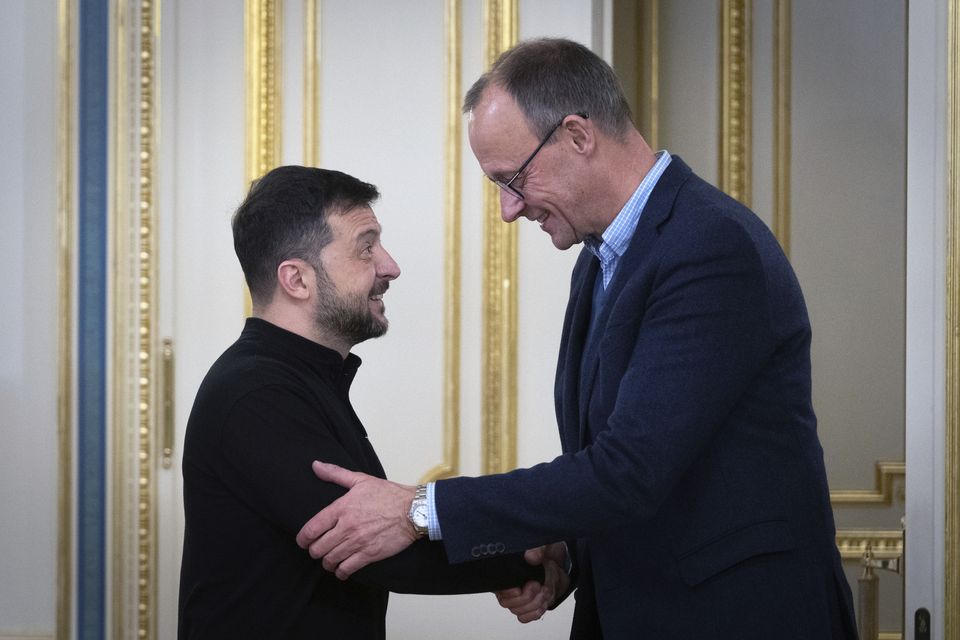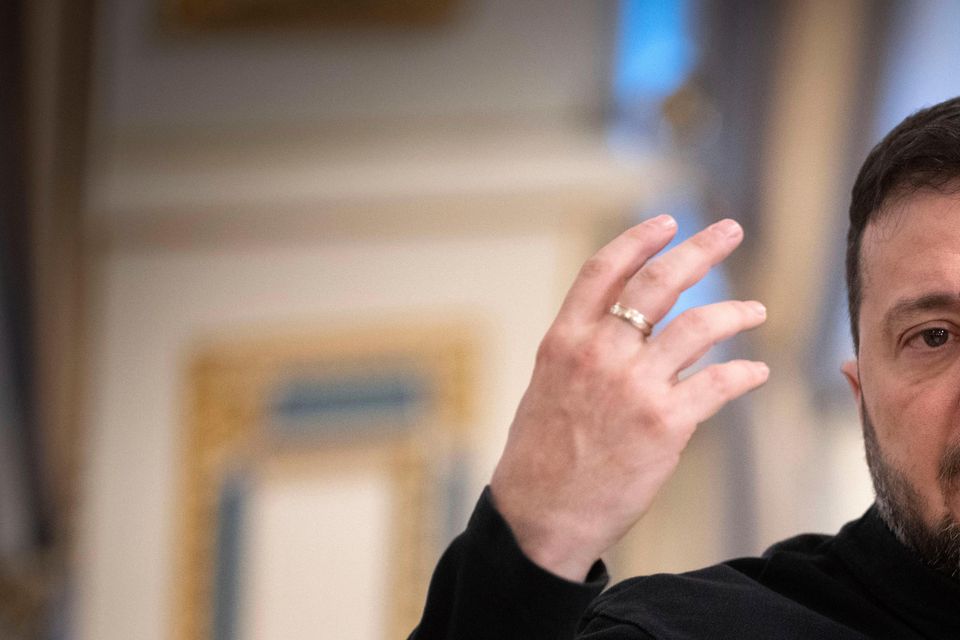Ukrainian President Volodymyr Zelensky has said that he is open to the potential deployment of Western troops in Ukraine to guarantee the country’s security as part of a broad effort to end the almost three-year war with Russia.
The deployment would be a step toward Ukraine joining Nato, Mr Zelensky said in a post on his Telegram channel.
“But before that, we must have a clear understanding of when Ukraine will be in the European Union and when Ukraine will be in Nato,” Mr Zelensky said.
Ukrainian President Volodymyr Zelensky and the chairman of the German Christian Democratic Party Friedrich Merz during their meeting in Kyiv (Efrem Lukatsky/AP)
His proposals tread a delicate diplomatic path amid international efforts to find a way of ending Europe’s biggest conflict since the Second World War at a time when Russia has gained an upper hand in the fighting.
US President-elect Donald Trump is seeking to bring about a ceasefire and met with Mr Zelensky in Paris on Saturday.
But Mr Zelensky said on Monday that he would approach outgoing US President Joe Biden about Ukraine’s possible Nato membership because he is still in office, while Mr Trump does not yet have “legal rights” to decide on the matter.
The possibilities of Ukraine joining the 32-nation military alliance and of Western troops being stationed on its soil have been deeply divisive and contentious issues since Russia’s full-scale invasion began on February 24, 2022.
At their summit in Washington in July, Nato declared Ukraine on an “irreversible” path to membership, but stopped short of inviting the country in.
The US and Germany have balked at Ukraine joining Nato while at war with Russia.
One obstacle has been the view that Ukraine’s borders would need to be clearly demarcated before it could join so that there can be no mistaking where the alliance’s pact of mutual defence would come into effect.
Russia’s invading army occupies about one-fifth of Ukraine.
Ukrainian President Volodymyr Zelensky talks during his meeting with the chairman of the German Christian Democratic Party Friedrich Merz in Kyiv (Efrem Lukatsky/AP)
French President Emmanuel Macron floated the idea of Western troops on the ground in Ukraine last February.
But it raised the same fears of escalation that have led Western leaders to place limits on weapons supplies and permissions for their use.
European military heavyweights Germany and Poland immediately said they would not send troops to Ukraine.
Mr Macron declined to provide details about which nations were considering sending troops, saying he preferred to maintain some “strategic ambiguity”.
Meanwhile, Chancellor Olaf Scholz’s challenger in the upcoming German election, Friedrich Merz, said that there is a “basic consensus” in Germany on continuing to provide military aid to Ukraine.
But during a visit to Kyiv, he also highlighted differences with Mr Scholz, who has refused to send Taurus long-range cruise missiles to Ukraine as he insists that everything must be done to prevent a wider war between the West and Russia.
Mr Merz has been open to providing them and allowing Ukraine to hit military targets inside Russia.
As he met Mr Zelensky, Mr Merz noted that France, the UK and the US have a different position from the current German government.
“Our position is clear, as is that of my parliamentary group: we want to put your army in a position to reach military bases in Russia – not the civilian population, not the infrastructure, but the military targets from which your country is being fought,” he said.
“With this range restriction, we are forcing your country to fight with one hand behind its back, and that is not our position,” he added.
Mr Merz’s centre-right Union bloc leads German opinion polls.
The election is expected on February 23.

